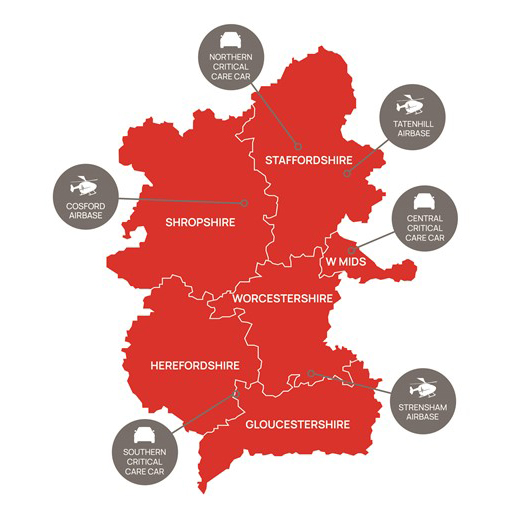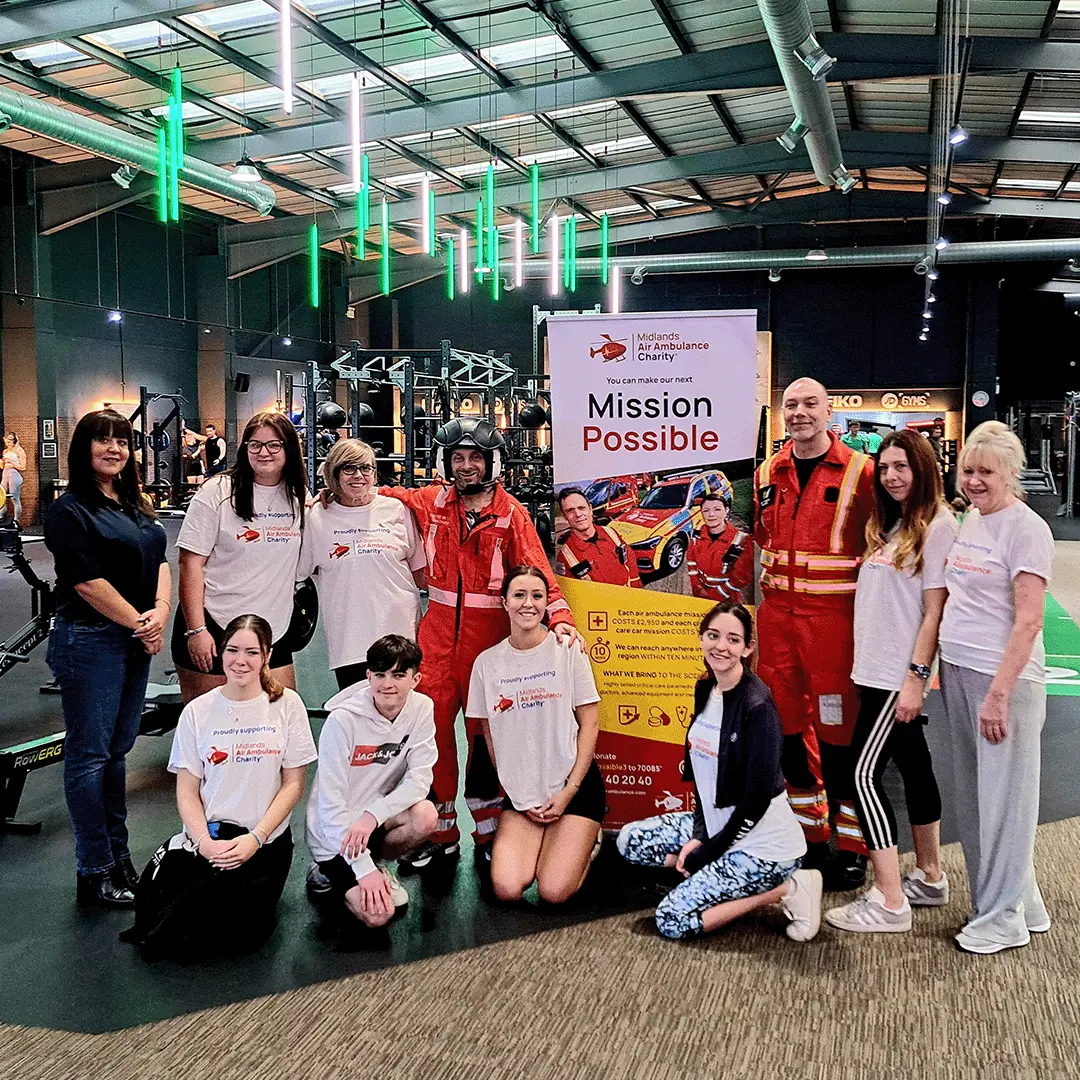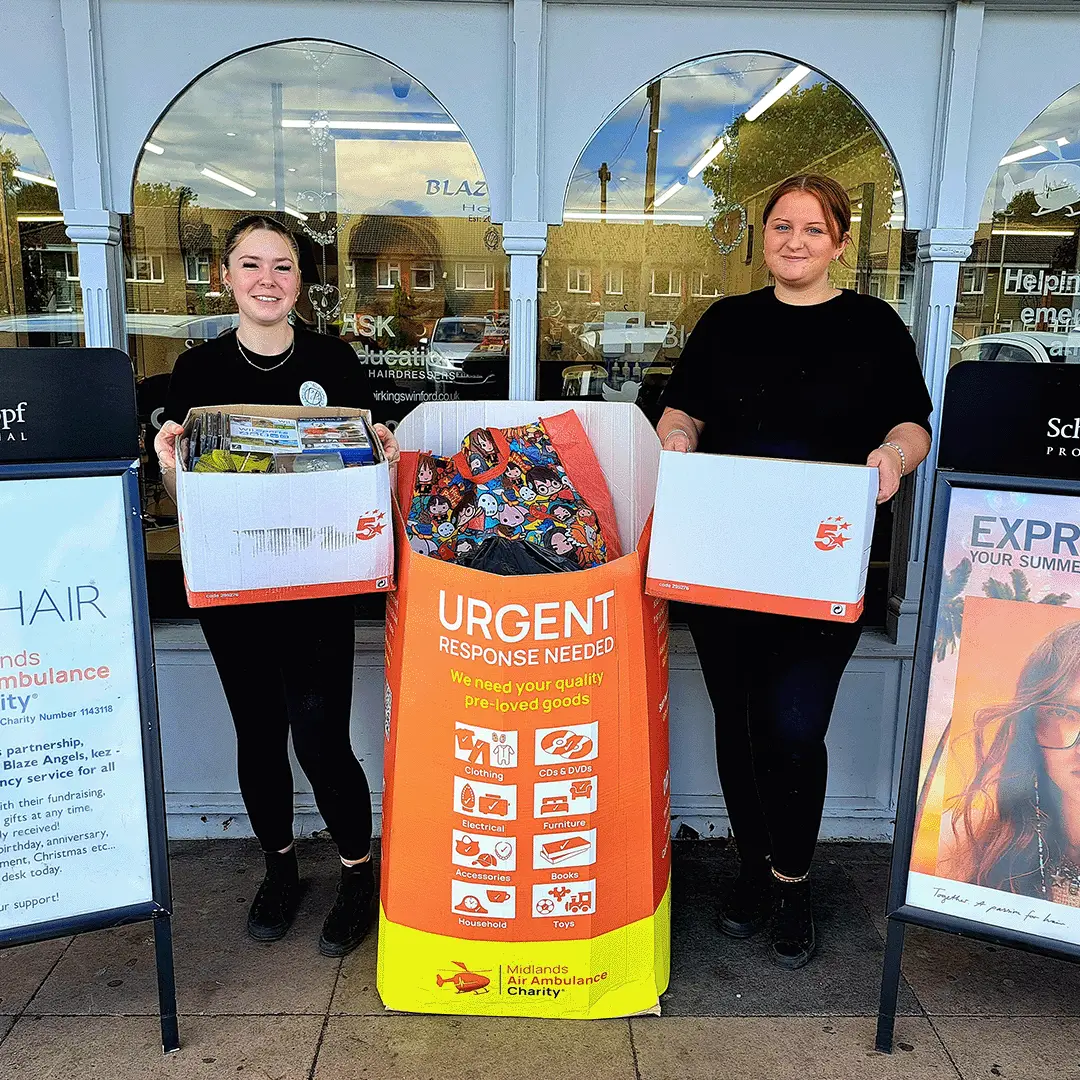Working with MAAC
Midlands Air Ambulance Charity
"Well done to Brett Harris and Blaze Hair who have won our highly commended award for community fundraiser. The passion and commitment that Brett and his team at Blaze Hair Salon have shown to raising funds is astounding. Having raised almost £10,000 in a short space of time in memory of their beloved colleague and friend Kerry Boucker, who passed away in December 2023. Blaze hair Angels definitely deserve to be recognised for their ongoing commitment to fundraising!!”

Midlands Air Ambulance Charity (MAAC) operates and funds three air ambulances covering six Midlands counties including Gloucestershire, Herefordshire, Shropshire, Staffordshire, Worcestershire, and the West Midlands.
Care Quality Commission Regulated
MAAC is an independent charity and healthcare provider that is registered with the Care Quality Commission (CQC). The aim of the CQC is to ensure patients can expect to receive the essential standards of quality while being treated by the MAAC team in the pre-hospital environment. At present, MAAC is waiting for its first CQC rating, which will be displayed publicly once received.
Charity Mission
To provide patients with outstanding pre-hospital care and lifesaving intervention through the operation of helicopter-led emergency medical services (HEMS) - we will continue to save more lives and improve survivors’ quality of life through the provision of a comprehensive, transparent, clinical and operational helicopter led emergency service aligned to changing patient need and demand.

Official MAAC 
We are appealing to anyone who can provide any of the following:
Good quality clothes, books, toys, games, household items, electricals, cd’s/ dvd’s and accessories. You can drop them into our ‘donation station’ outside the salon, during business hours. Big thank you in advance to our network of clients, friends and supporters!
Why not make a difference , get in touch and find out how you can help
Each year it costs £13-14 million to maintain the three aircraft and the provision of a lifesaving service. Each air ambulance mission costs an average of £2,950. Each critical care car mission costs £288 on average. The charity does not receive funding from the Government or National Lottery for its daily missions so relies entirely on the support and generosity of local people and businesses.
Since 1991, we have responded to more than 74,000 missions, making us one of the busiest air ambulance services in the UK. Find out more about Midlands Air Ambulance Charity's history.
We operate from strategically located regional airbases at Cosford in Shropshire, Strensham on the Worcestershire/Gloucestershire border and Tatenhill in Staffordshire. Each aircraft carries a crew comprising a pilot, two paramedics or a paramedic and flight doctor, plus full life-support medical equipment. Three rapid response vehicles are deployed when the helicopters are unable to fly, due to bad weather for example.
In addition, the charity has a fleet of critical care cars, which operates between 7am until 2am daily by critical care paramedics.
Every second counts in an emergency and on average, our crew arrive on scene within ten minutes, whether by air ambulance or in one of our critical care cars.
The charity responds to some of the most traumatic incidents including cardiac arrests, road traffic collisions and sports injuries. The aircraft reaches remote locations to attend to patients unreachable by land ambulance.



